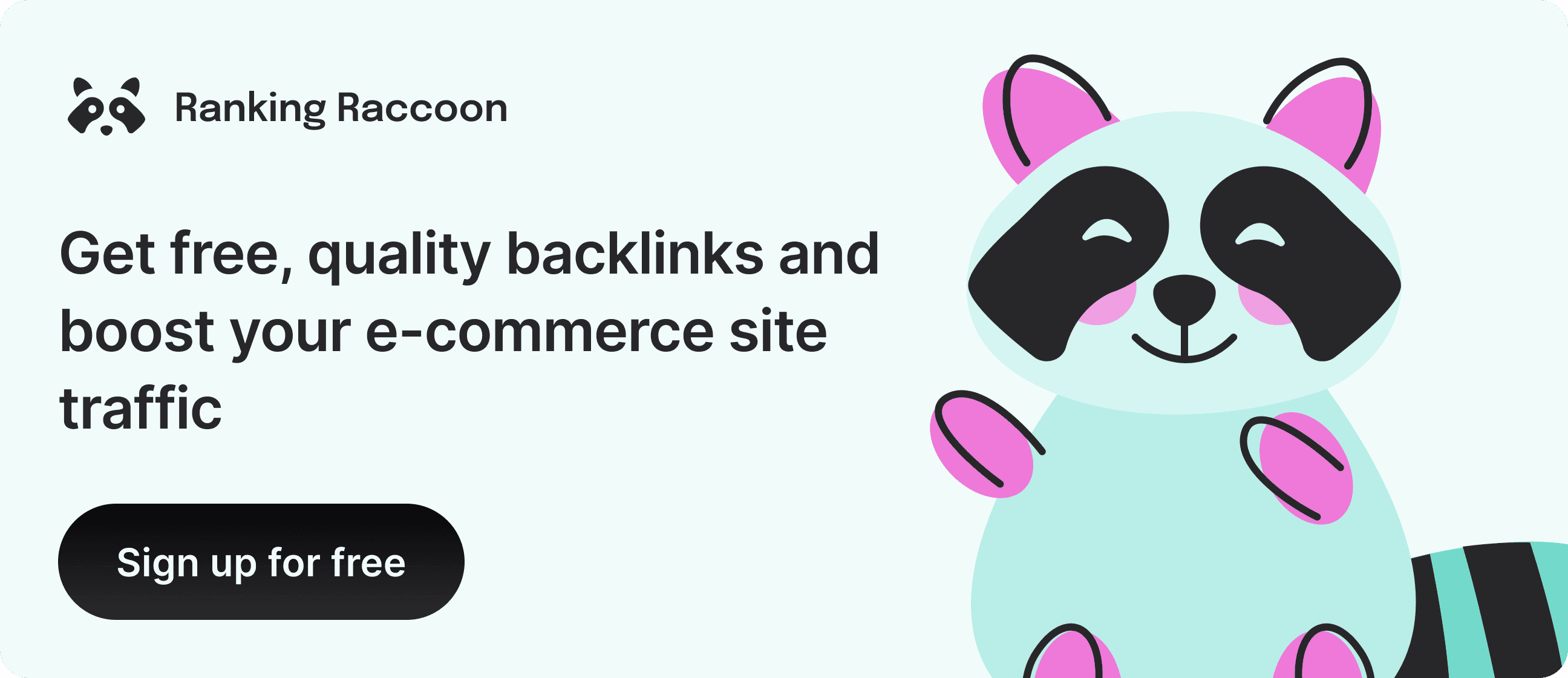E-commerce Link-Building: How do You Make it Work? [A 2025 Guide]

Natalia Toth
Running an e-commerce store is no joke. There are 26.5 million e-commerce websites globally, with more launching every day.
And everyone's gunning for that sweet spot on Google’s search results page.
One of the best ways to stand out is through quality link-building. However, for e-commerce, it’s a different game compared to other niches.
In this guide, we'll break down what e-commerce link-building is, why it’s vital for your e-store, and the best tactics to up your rankings and boost revenue.
Plus, we’ll sprinkle in some expert advice from users who’ve been there, done that, and share common mistakes.
Why is marketing an e-commerce site tricky?
E-commerce sites face some specific marketing challenges.
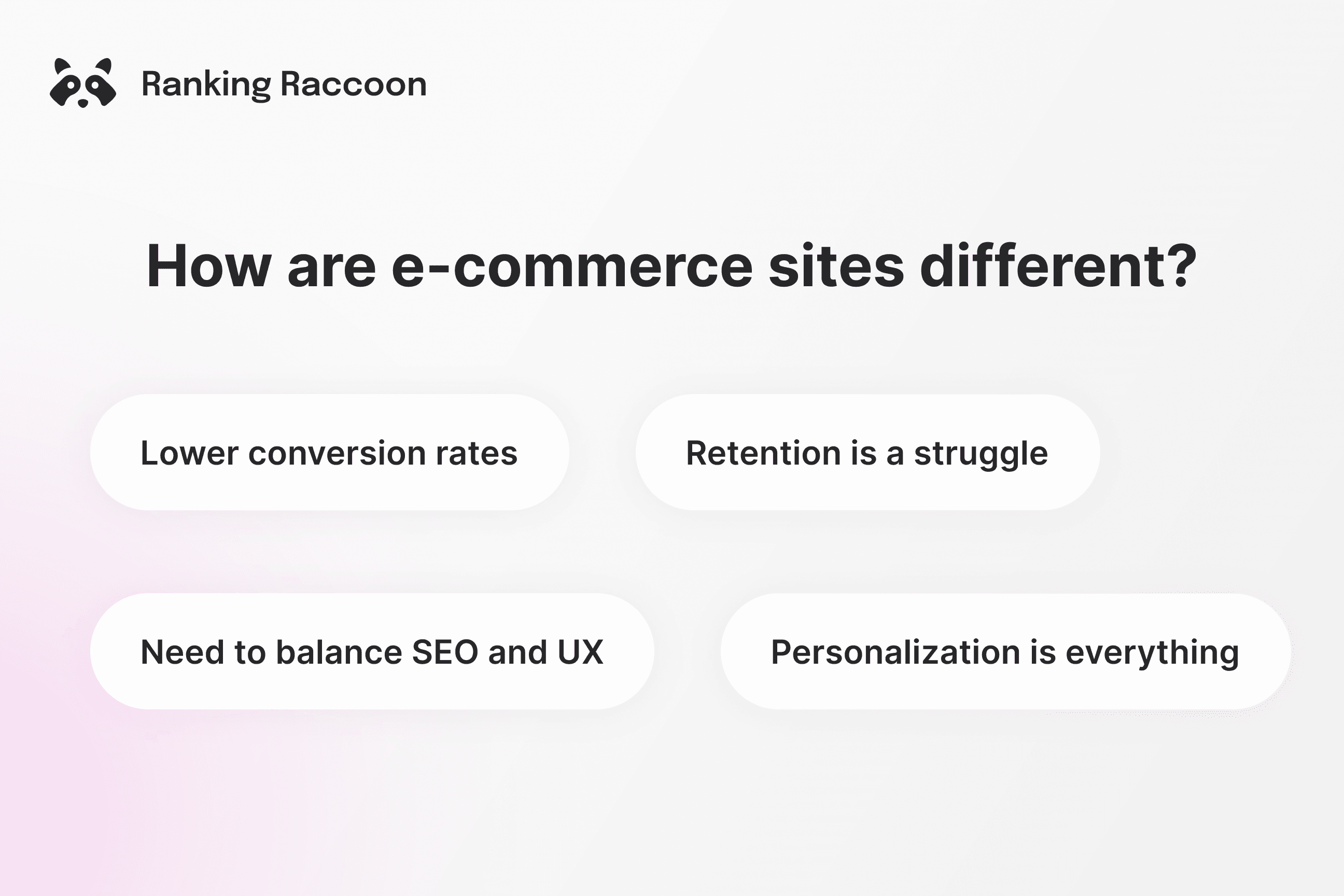
- Lower conversion rates
E-commerce link-building isn't just about getting eyes on your site—it's about getting buyers to your store.
And that’s where e-commerce brands have it tough.
The average conversion rate for e-commerce sites is a mere 2.86% according to Monetate, way lower than other niches can boast.
Moreover, Baymard Institute reports that nearly 70% of all shopping carts are abandoned, making it a constant challenge for e-commerce marketers to convert visitors into paying customers
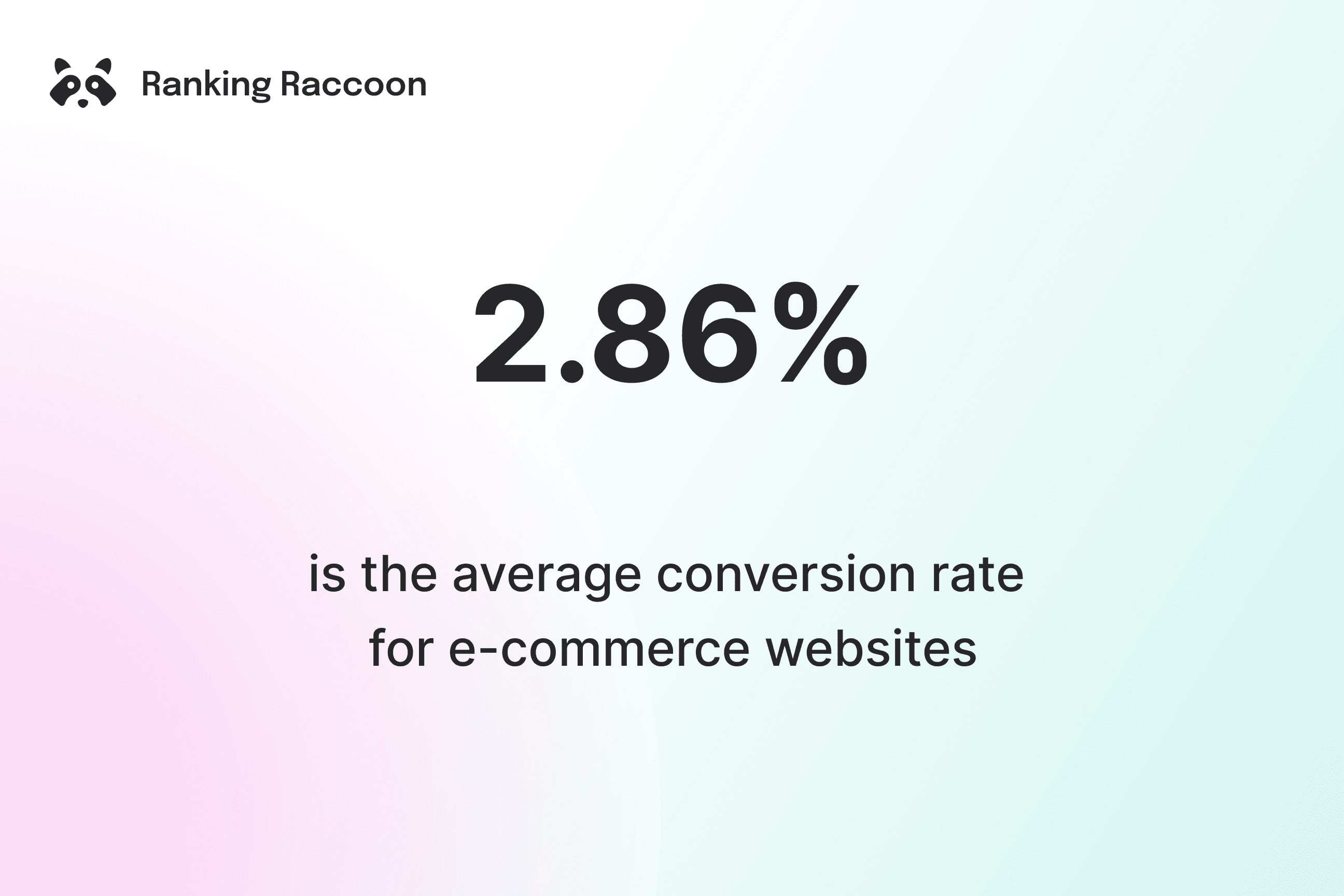
- Retention is a struggle
Only 27% of first-time customers return for a second purchase, according to Marketing Metrics.This increases the cost and effort needed for repeated sales.
- Need to balance SEO and UX
Finding a compromise between SEO-optimized content and great user experience is tricky. You want your site pages to reflect relevant keywords that drive ready-to-buy consumers to your site, and you want your site visitors to add items to your cart and check out. But being too pushy and too promotional can put potential buyers off.
One Reddit user summed it up perfectly:
"Building links for e-commerce is like walking a tightrope. You’re balancing SEO strategies that could help you rank with tactics that feel too 'salesy,' which can scare off potential buyers."
Of course, a lot depends on where you host your e-store. So it's crucial to choose the right eCommerce platform with capabilities that matter for your business.
- Personalization is everything
Unlike many other niches, for e-commerce brands, personalization is the main driver of buying decisions. 80% of consumers are more likely to make a purchase when brands offer personalized experiences, and 48% will spend more. Yet, 73% of consumers say that brands fail to meet their expectations for personalized experiences.
Bottom line: for e-commerce sites, conversions are the name of the game.
How backlinks benefit e-commerce sites
Backlinks improve your site's visibility in search engines, bring more traffic and eventually more sales.
Higher rankings - more traffic
According to Statista, 43% of e-commerce traffic worldwide comes from organic search. Moreover, nearly 24% of all e-commerce orders are directly tied to organic traffic, as Hubspot reports in State of Marketing 2024.
Yet, it’s getting harder to rank due to increasing competition and frequent algorithm updates.
Relevant backlinks help your site survive any Google Update storm and stay visible to potential customers. According to Moz, sites that are featured in the top 10 search results have 3.8 times more backlinks than sites that rank lower.
More engaged users - more sales
More importantly, backlinks raise the conversion rates. Quality backlinks don't just bring traffic — they bring buyers.
Studies show that visitors who find your site through a referral link are 47% more likely to convert compared to visitors arriving via other channels.
For instance, if a sustainable apparel brand earns a link from a popular lifestyle magazine, readers from that blog are more likely to convert because they're already primed to buy it after reading the review. That means, your link-building ROI can be way higher that ROI of other marketing channels.
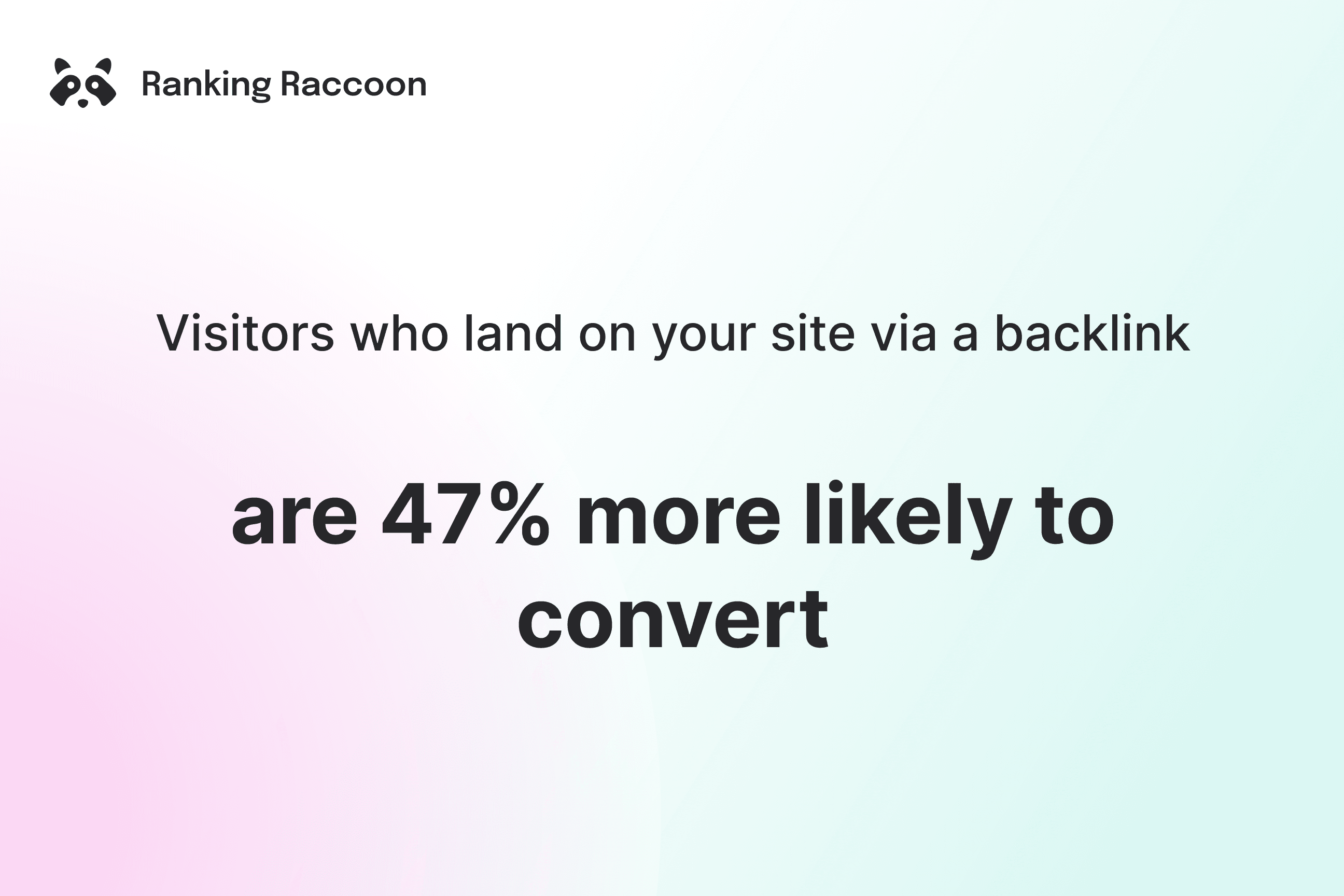
For example, Patagonia’s jacket was featured in Good Housekeeping’s article on 27 Best Eco-Friendly Products - with a backlink directly to the product’s page on Patagonia’s e-shop.
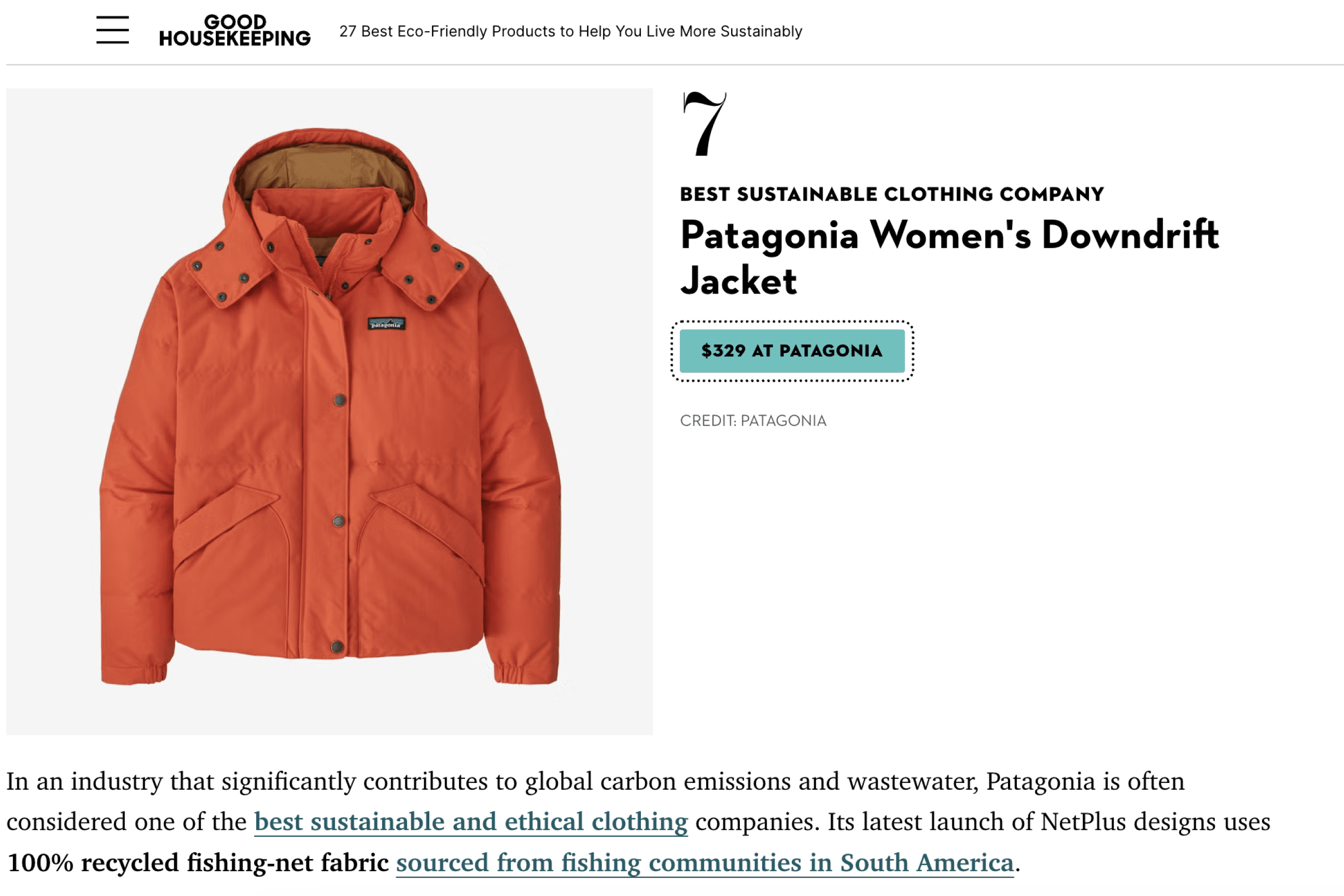
If you sell on e-commerce sites such as Amazon or Walmart, magazines can link to your products on these sites. While these links don’t impact your site rankings directly, they still contribute to your sales.
And that’s exactly what you need, don’t you?
Read more: 6 Benefits of Link-Building for Your Site (And Business)
How eCommerce Link-Building Differs
Building links for eCommerce sites is a bit different from other niches.
1. Getting Links to Product Pages
Ideally, we want potential buyers to land directly on a product page, add item to cart, and check out.
But it's exactly these pages that are hardest to get links to.
Product pages usually have less content and are heavily sales-focused, which makes it tricky to get backlinks from other sites.
How do you make these pages more link-worthy? You can create detailed product descriptions, add high-resolution images, and include customer reviews.
Or, invest in supporting content like buyer guides or "how-to" articles that link back to your product pages. This gives other sites a reason to share your content while boosting your product page visibility.
Read more: eCommerce Link-Building: 8 Sites That Got it Right
2. Boosting Category Pages
Category pages group similar products together and often target broader, high-traffic keywords, like 'evening dresses', 'toys for kids aged 3-5', etc.
To secure links to these pages, make sure they have clear, keyword-rich descriptions that explain the products and their benefits. You can also promote these pages by reaching out to niche blogs, industry sites, or forums. Sharing category pages in curated gift guides or "best of" lists can also attract backlinks.
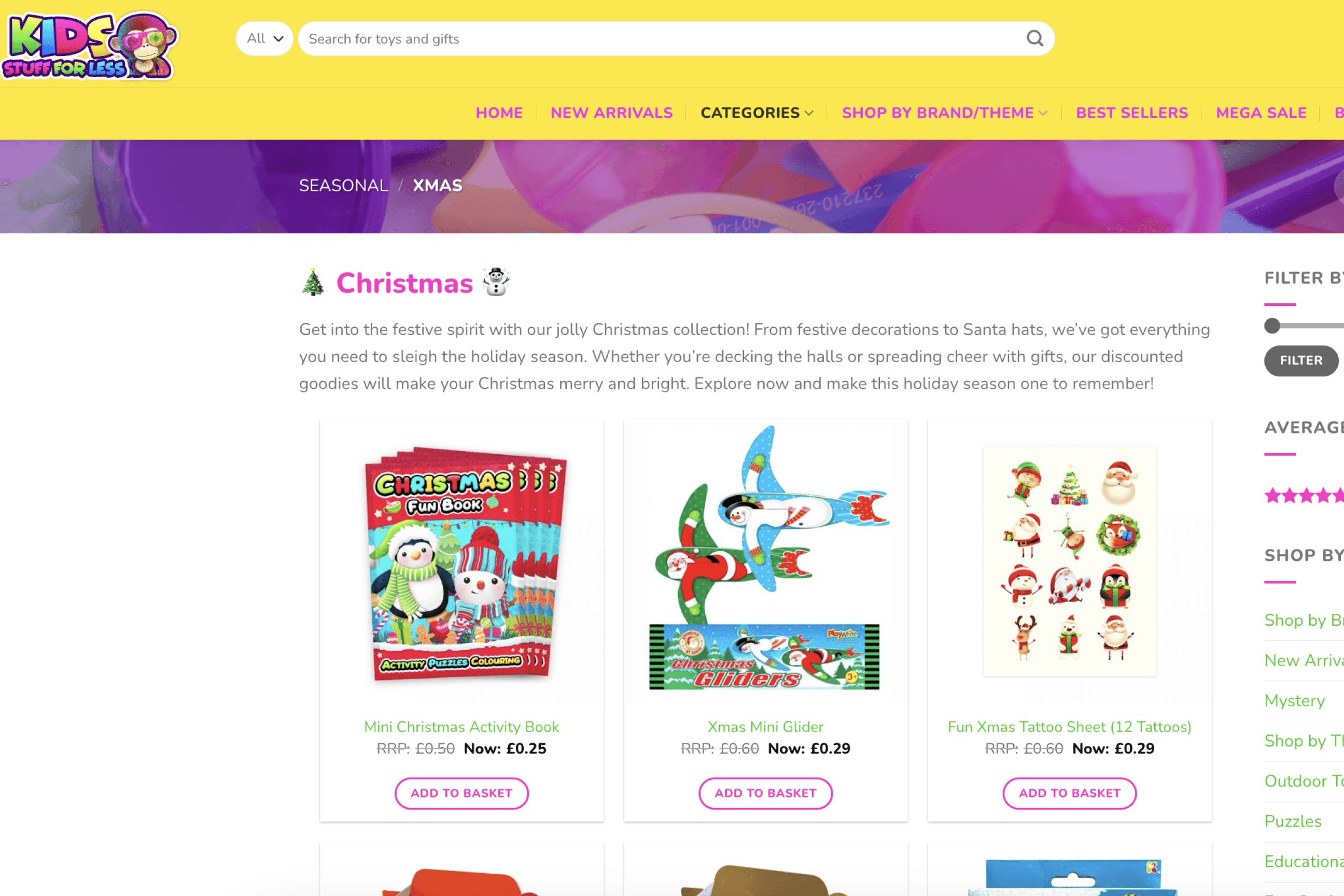
5 best link-building tactics for e-commerce sites
Now that you're convinced that your ecommerce site needs backlinks, let's see which five tried-and-true tactics help you score the best backlinks and grow traffic and sales.
1. Influencer marketing
Getting bloggers to review your products is still gold. Not only do you get those valuable backlinks, but you also gain credibility with buyers.
"We reached out to micro-influencers and got backlinks that really helped build trust with our audience. It was a win-win."
A Quora User
Influencer marketing shows an impressive ROI, too. 89% of marketers think investing in influencer marketing gives a better return than other channels.
Businesses make an average of $6.50 for every $1 spent on influencer marketing - so it’s a channel you should experiment with. If your audience hangs out on Instagram, TikTok, Twitter, or YouTube Shorts, teaming up with opinion leaders to feature your product on these platforms can be a great move.
Platforms like influData, InfluencerMarketing.ai, or HypeAuditor can help find influencers in your niche. For example, if you sell jewelry and accessories, HypeAuditor will source 108K opinion leaders you can collaborate with.
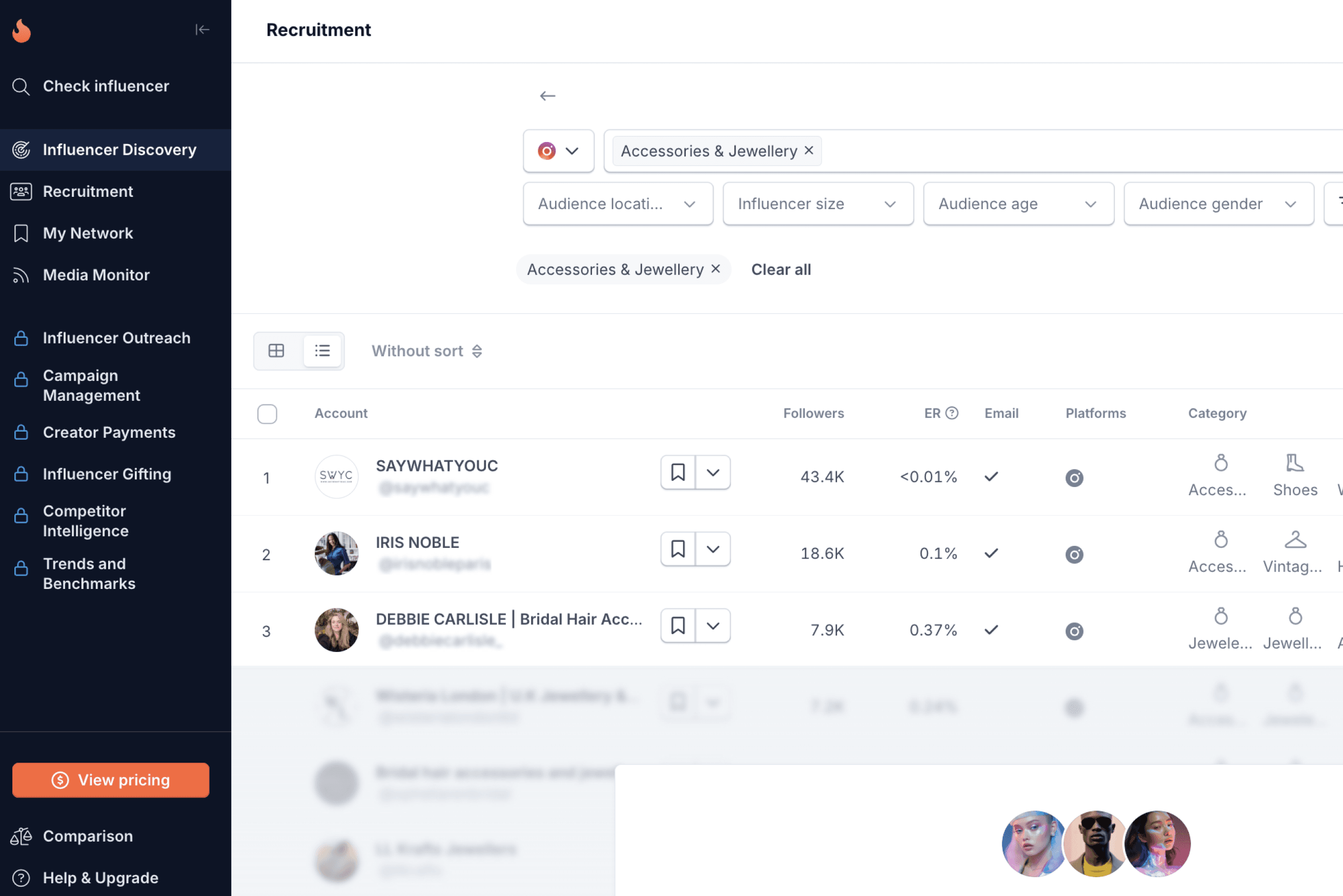
2. Digital PR campaigns
84% of companies see more traffic thanks to digital PR campaigns. Plus, the recent Google Leak confirmed that links from news websites are one of the most valuable ones.
If you pitch newsworthy stories tied to your brand, you could score links from top media outlets. For instance, if you sell eco-friendly products, pitch your insights about sustainability to the authors of green blogs.
Some great tools to find digital PR opportunities are Featured, Sourcebottle, Qwoted, PitchRate, and Terkel.
3. Resource pages and guides
According to SEMrush, 78% of marketers believe that content-based link-building works best for e-commerce.
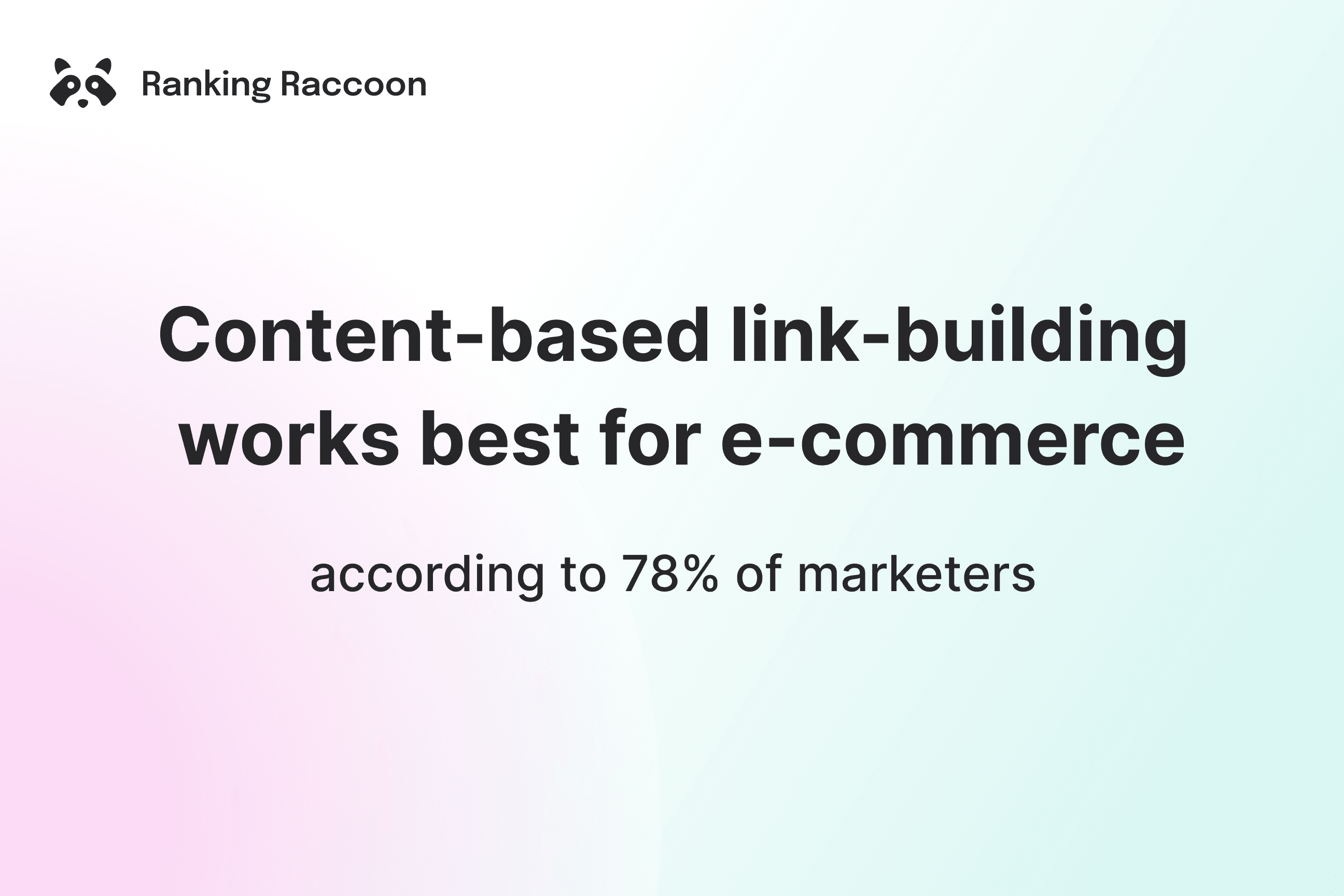
As trivial as it sounds, content is still King, especially when it comes to earning high-quality links. Solving your audience's problems with great content can get you links — and customers.
"Content is the backbone of our link-building efforts. We produced a video series that got us backlinks from several industry websites."
An anonymous Quora user
Useful guides and resource pages can score you backlinks in less time and generate engaged traffic. Think buyer’s guides, how-tos, or industry tips that others will want to link to.
A prime example is Davines’, a UK haircare brand, Ultimate Guide to Curtain Bangs in 2024, which is their top-performing blog post. The guide covers all aspects of curtain bangs hair and ranks for an impressive total of 940 organic keywords.
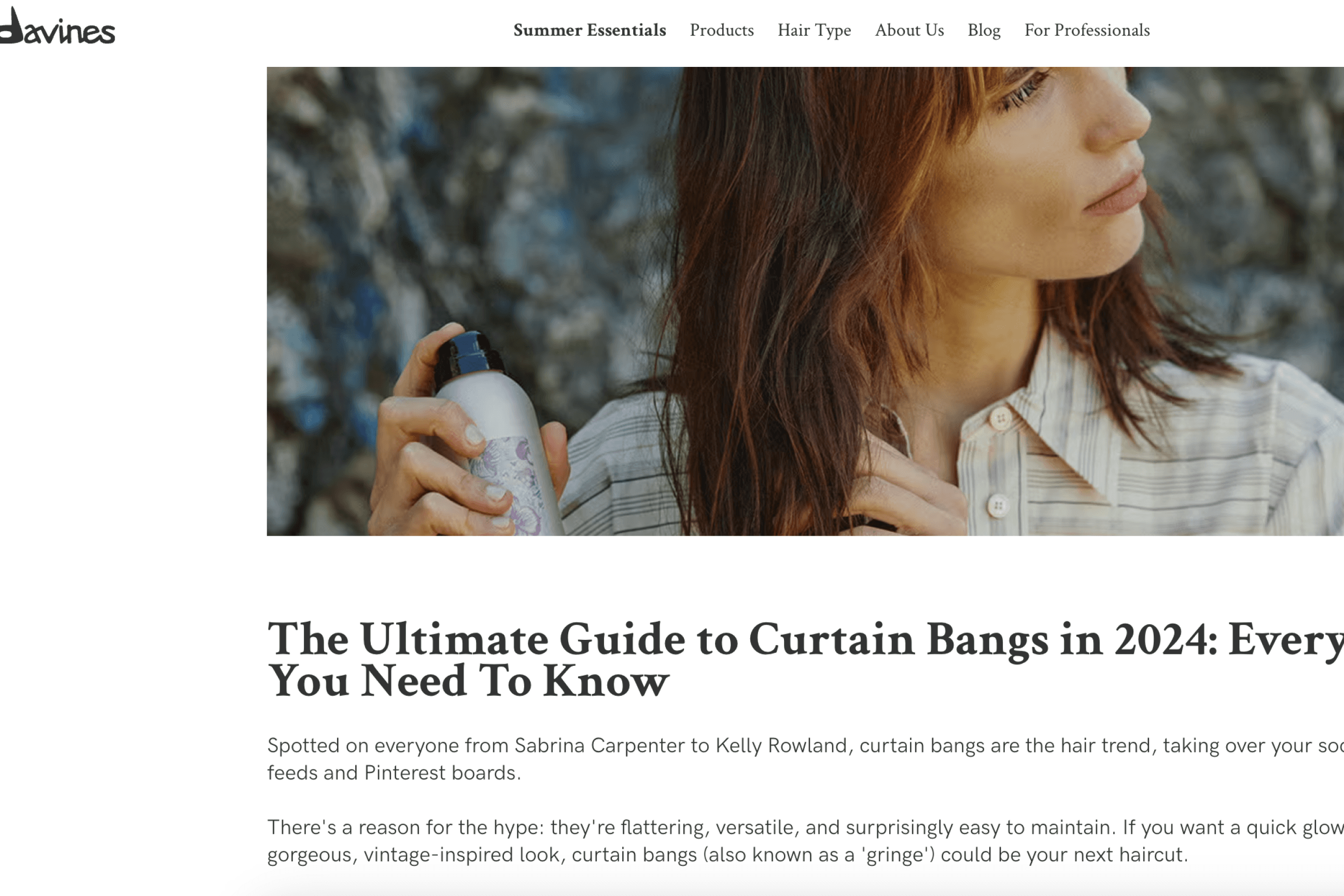
Pro tip: if you write a guest blog post for a partner site, create a similar, but shorter resource page on this topic on your own site. This gives you two chances to snag backlinks—the guest post itself and your resource page.
4. FAQ pages
A detailed FAQ section covering questions that keep your target audience awake at night is great for boosting your rankings.
Imagine you run an e-commerce store that specializes in eco-friendly home goods, like reusable kitchen wraps and sustainable cleaning products.
Here's how you can leverage FAQ pages for link-building:
1. Find popular questions
Use tools like Ubersuggest to find out what questions your potential customers ask online about eco-friendly products. Type in the keyword you’re trying to rank for, select your target market, hit ‘Search’, and go to ‘Questions’.
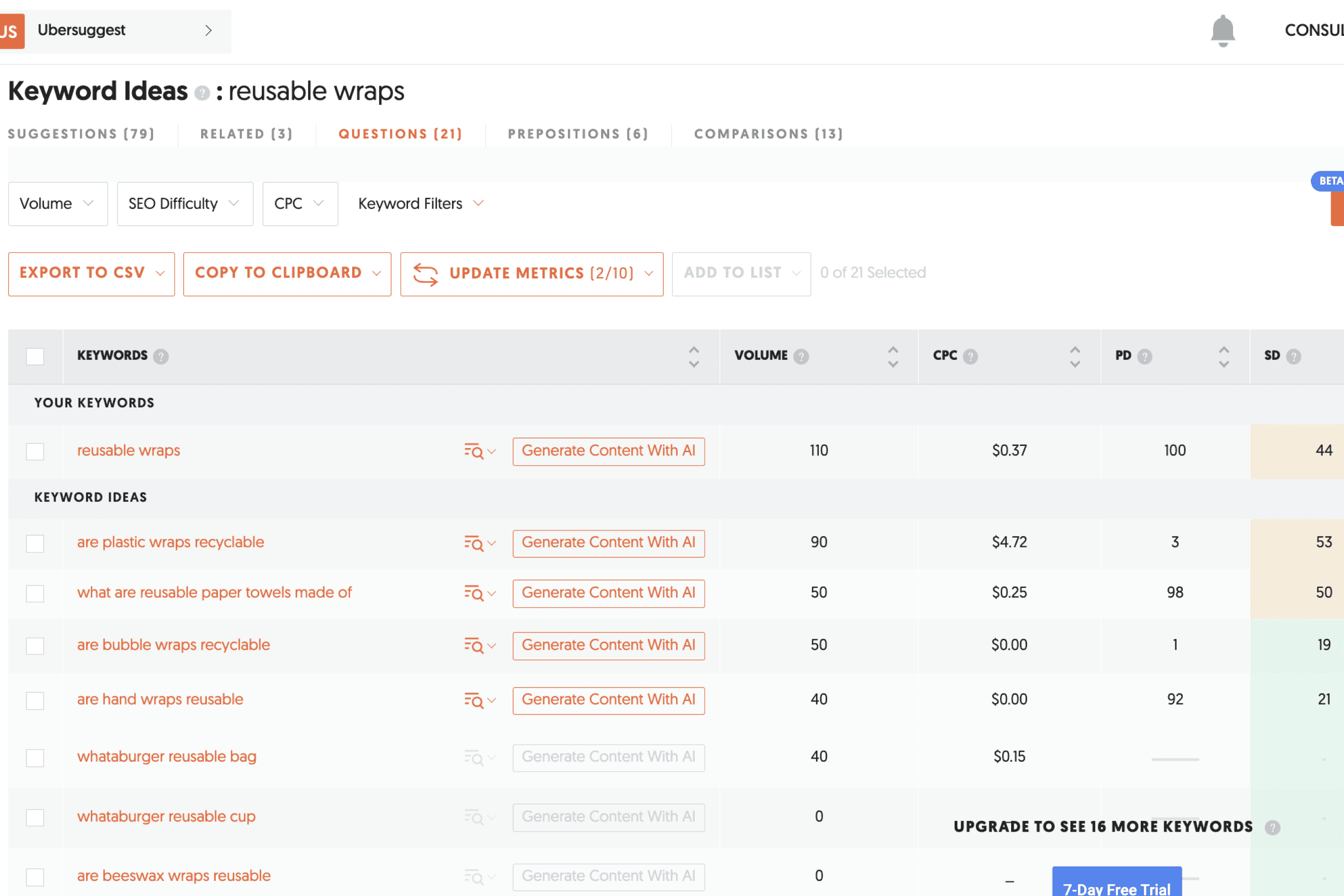
For instance, you might discover that people frequently search for “How do reusable wraps compare to plastic wrap?” or “What are the benefits of bamboo cleaning brushes?”
2. Craft detailed answers
Now, address these questions in your FAQ section. For example:
- Q: ‘How do reusable wraps compare to plastic wrap?’
- A: ‘Reusable wraps are a sustainable alternative to single-use plastic wrap. Made from materials like beeswax or silicone, they can be used multiple times and are often compostable or recyclable at the end of their life.’
That’s exactly what Nature Bee, a Canadian sustainable home goods provider did on their website. They have a dedicated FAQ page that covers questions about various products. In addition, they place an FAQ section on blog posts about specific items such as shower steamers.
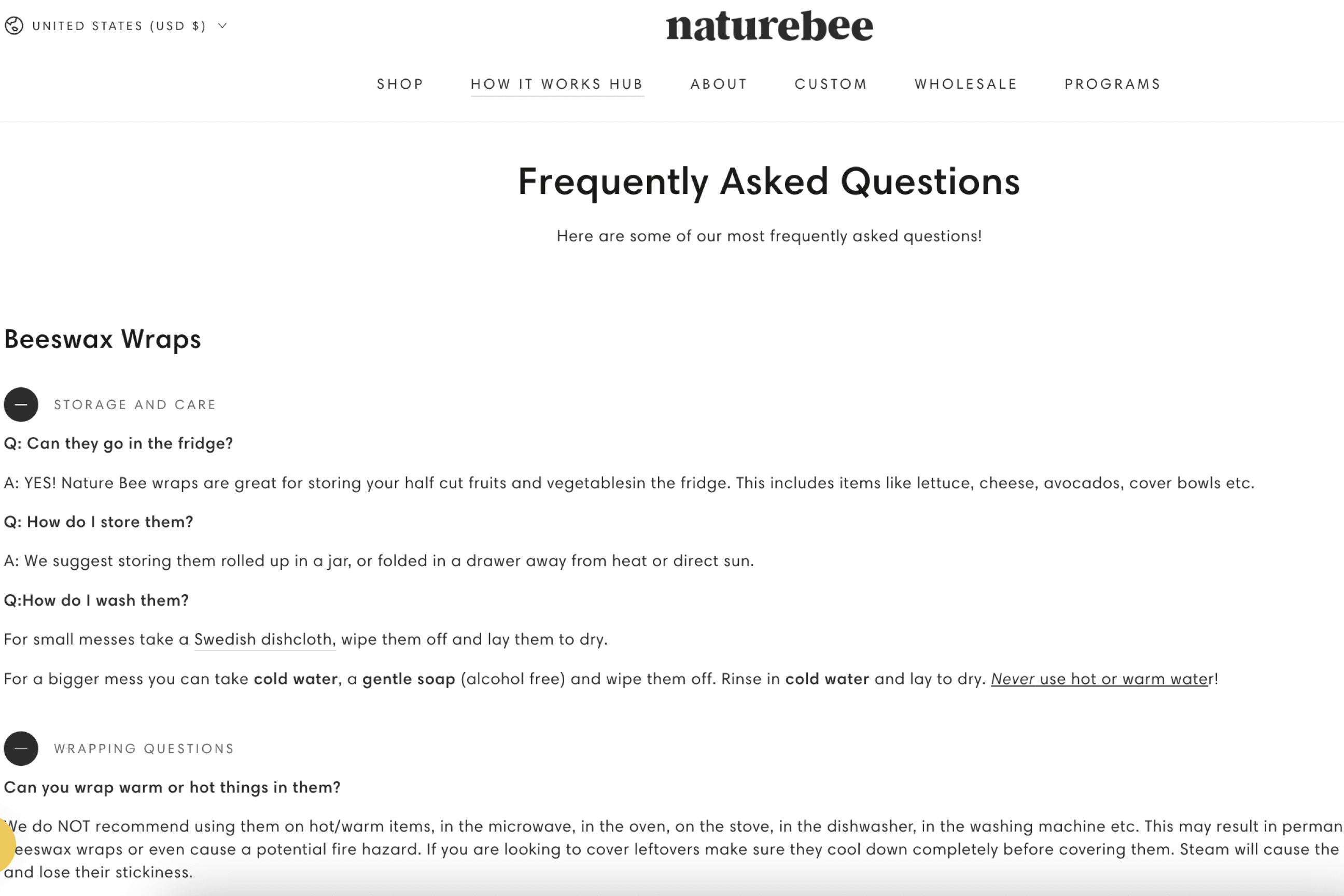
3. Leverage internal linking
When your FAQ pages get enough traffic, make use of it to drive sales.Link from the FAQ pages to your conversion pages where you want visitors to take action (e.g. add to cart and check out).
In NatureBee’s example, they first answer the FAQs on shower steamers - and suggest a few similar products I might be interested in. In Davines’ case, they invite you to find the Davines salon nearest to you.
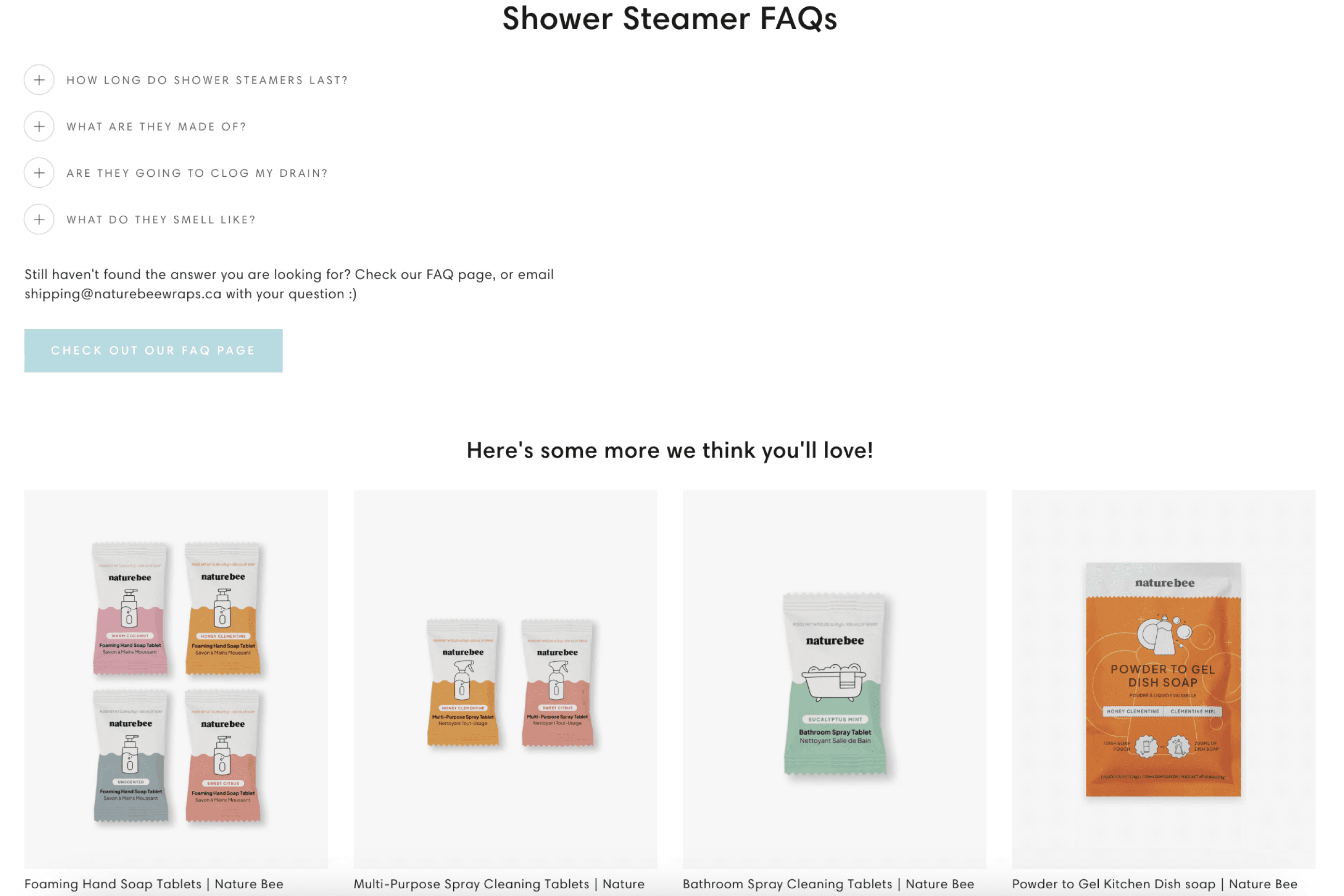
Read more: How to Measure Link-Building ROI in GA4? A 5 steps’ Guide
5. Links from online discussions (Reddit, Quora, and other forums)
Reddit, Quora, and forums are a worthy addition to your backlink sources.
E-commerce brands are making the most of these platforms to get their names out there and connect with potential customers. They jump into conversations, share some know-how, and build a reputation. Quora and Reddit answers can get picked up by search engines, so if you craft a good response, it can keep sending traffic your way for ages.
"We’ve gotten links from niche forums that still send traffic months later. It’s all about adding value first and building real connections."
A Reddit user
Another bonus of being active on forums is more trust and credibility. When brands answer consumer questions, share tips, and don’t just push products, people start seeing them as helpful and knowledgeable, which keeps them coming back for more.
As a brand, you can create a profile and jump into subreddits that match your niche. If you sell food supplements, you may get active on the r/HealthyFood subreddit which has 3.2M members. If you produce apparel, joining r/Fashion might be a good idea.
In addition, you can even start your own Subreddit. That’s what the underwear brand MeUndies did. Their subreddit, r/MeUndies, is an active forum with 3.1K members, and the brand asks a question every week to keep the community alive.
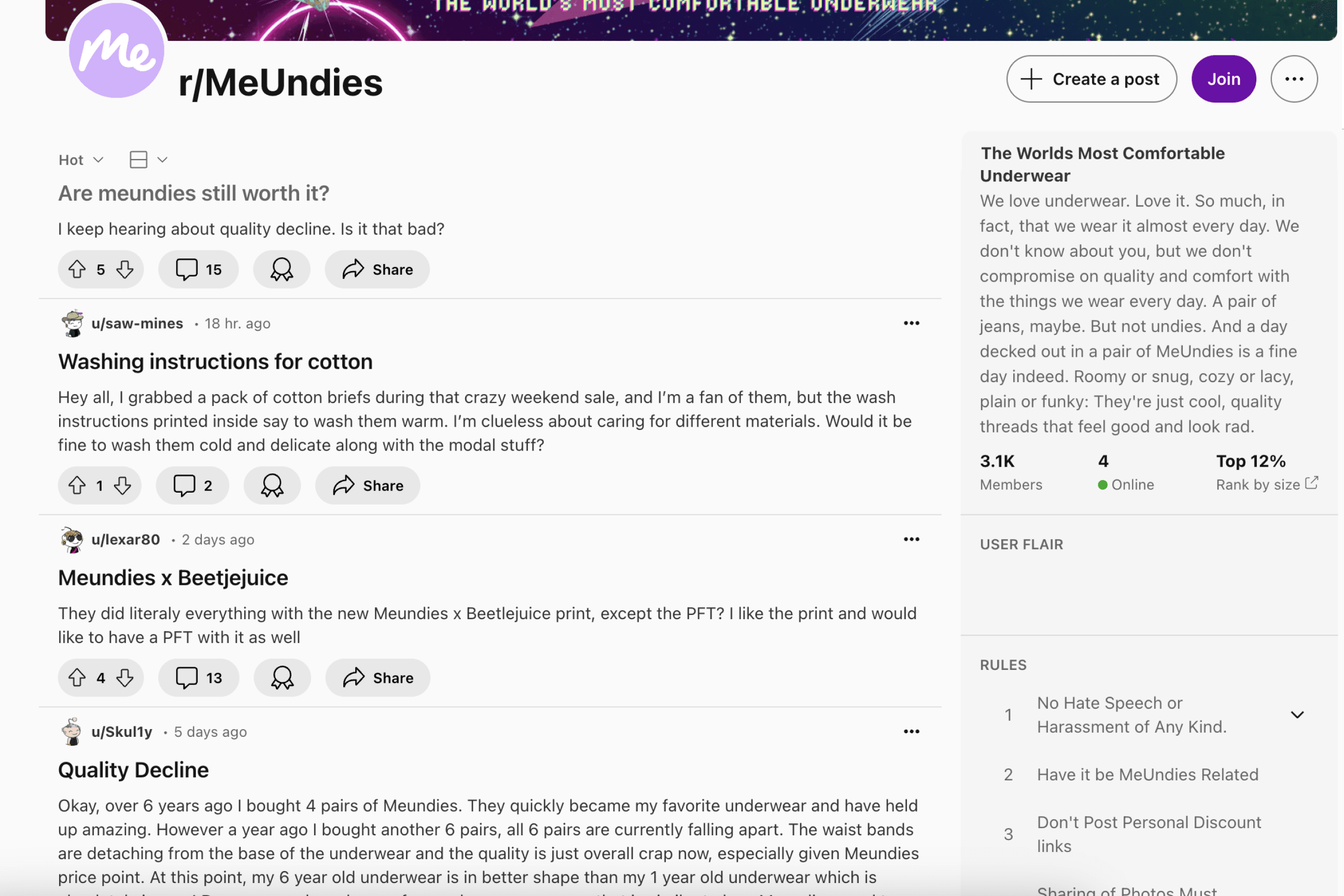
On Quora, you can add backlinks to your site right from your user’s profile.
For inspiration, that’s how Luisa Fanzani, the founder of Luisa True Skincare cosmetics brand from Italy, successfully promotes her shop on Quora. She regularly posts articles on and answers user questions about skincare, establishing her personal and shop’s brand. She even created her own Quora group - Skincare School by Luisa Fanzani - which has amassed 27K followers so far. That’s what we call a brilliant strategy!
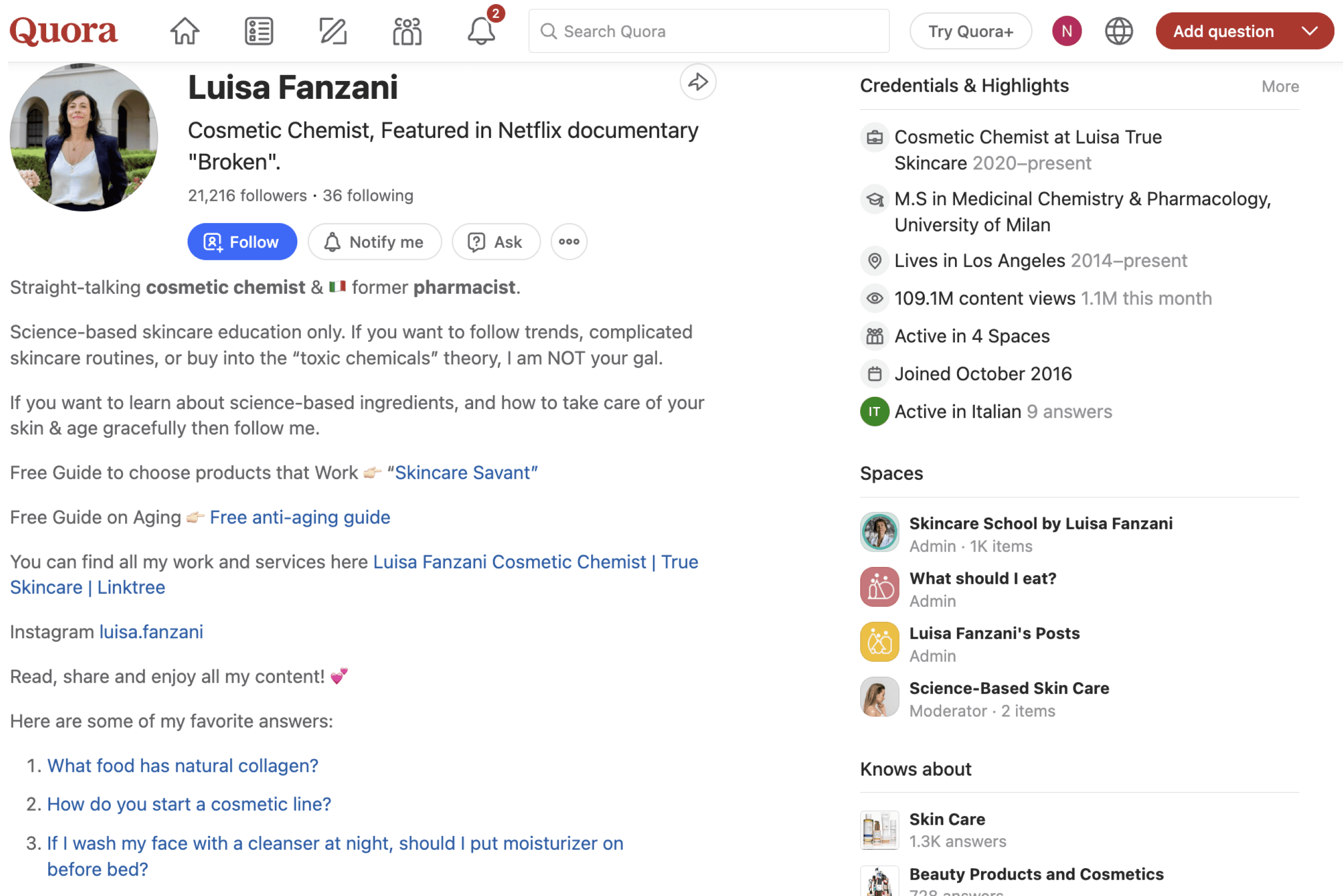
How do you score backlinks from online forums?
1. Get active in the right communities
Whether it’s Reddit, niche forums, or Quora, find where your audience hangs out and join the conversation. Don't waste your time on spammy groups or the ones where posts get no user views, upvotes, or comments.
2. Follow the rules
Always stick to the community guidelines, which can be very strict at times. Spamming can get you banned and your efforts lost in vain.
3. Add value
Forum posts with valuable links get 63% more engagement, according to Rhino Rank. So share genuine, first-hand insights before dropping a link. When done right, these communities can send you traffic for years.
Any traps I should avoid?
E-commerce link-building can be a minefield if you're not careful. Here are a few mistakes you'll want to dodge.
1. Using the same anchor text for all backlinks
It’s easy to get carried away, but using the same keyword-rich anchor text for all your links can get you in trouble with Google.
"We got dinged by Google for over-optimizing our anchor texts. Now we mix it up with branded and generic terms to keep things safe."
A Quora User
So, the best advice is to keep your anchor text varied.
For example, if you sell organic skincare products, keep your anchor text varied — mix in branded terms like “YourBrand’s Hydrating Serum,” raw URLs like “www.yourbrand.com/serum,” and neutral phrases such as “learn more about our products” or “click here for details.”
This approach looks natural to Google’s algorithm and keeps you safe.
2. Paying for backlinks
Our stance is clear on that one. Paid backlinks can quickly deplete your marketing budget, money that could be better spent on more effective strategies.
On average, a single backlink costs $361, according to Ahrefs.
And you need many more backlinks to start ranking, so your budget can quickly get out of hand.
3. Ignoring nofollow links
Nofollow links may not directly pass on link value to your site, but they can still send traffic. Moreover, a balanced link profile is key. A mix of dofollow and nofollow helps keep your link-building strategy looking natural to Google.
"After picking up a few nofollow links from busy forums like Reddit, we saw a nice boost in traffic—and that helped our SEO too."
An anonymous Reddit user
Which tools should I use for e-commerce link-building?
Link-building for e-commerce can be overwhelming, but you don’t have to go through it alone. Sure, cold outreach can bring results over time, but there are amazing tools out there that can make link-building way easier.
Give a try to Ranking Raccoon, the spam-free link-building networking platform. It helps e-commerce businesses exchange high-quality links with other trustworthy SEO pros - with a 11x higher success rate than with cold emails.
Sign up for free, and our AI will find the best backlink partners for you based on your site's content. All you need to do is send a link request to the site admin directly.
The bottom line
In e-commerce, link-building is about more than driving traffic. It’s about ensuring the best conversion rates and generating sales.
Whether you’re leaning on content marketing, influencer outreach, digital PR, or forums, a well-rounded strategy will help you build a solid backlink profile that brings in the right kind of traffic.
And affordable tools like Ranking Raccoon are here to help you score backlinks from relevant, trustworthy sites in no time and on a budget. We're rooting for you!

Natalia Toth
Marketing Manager